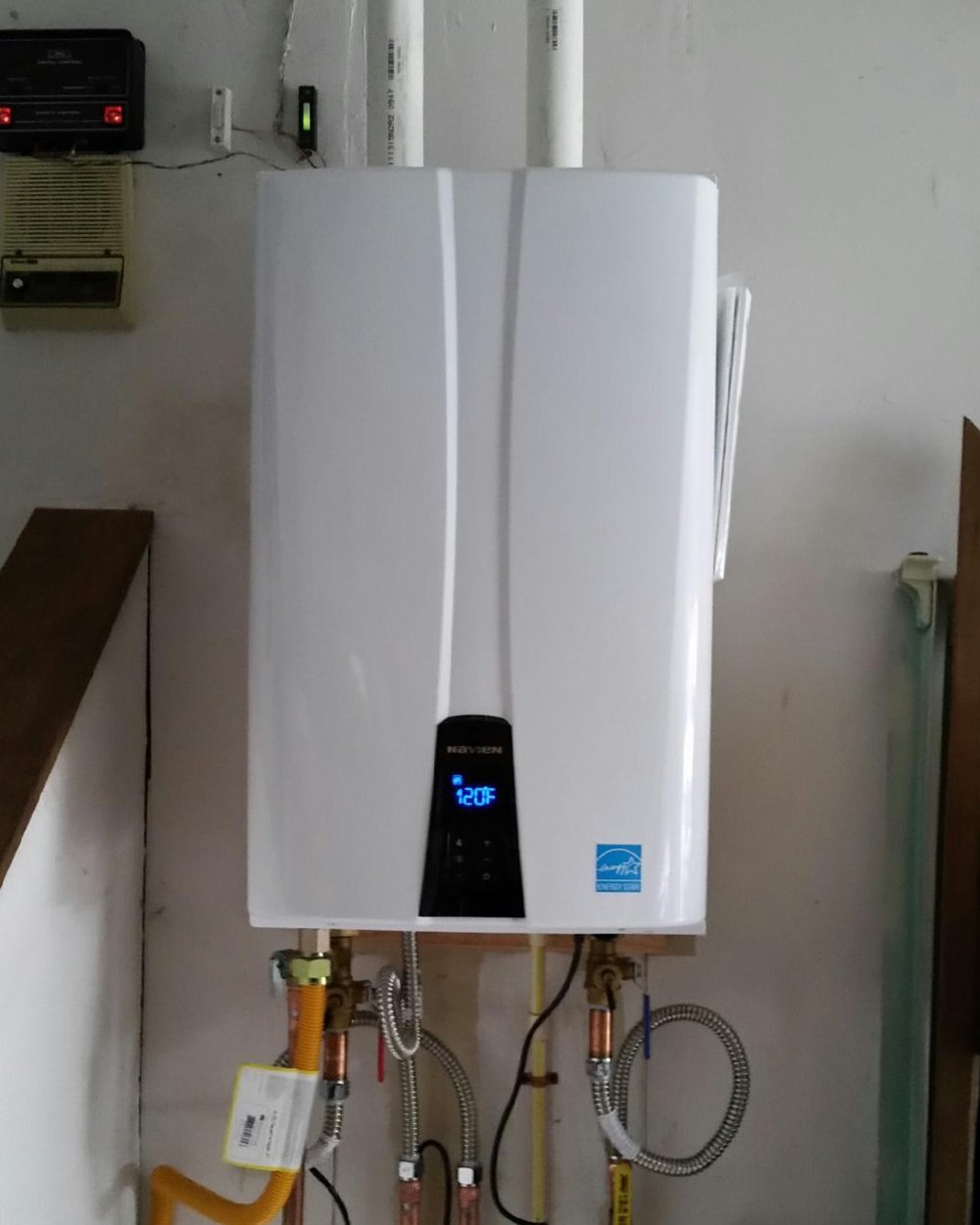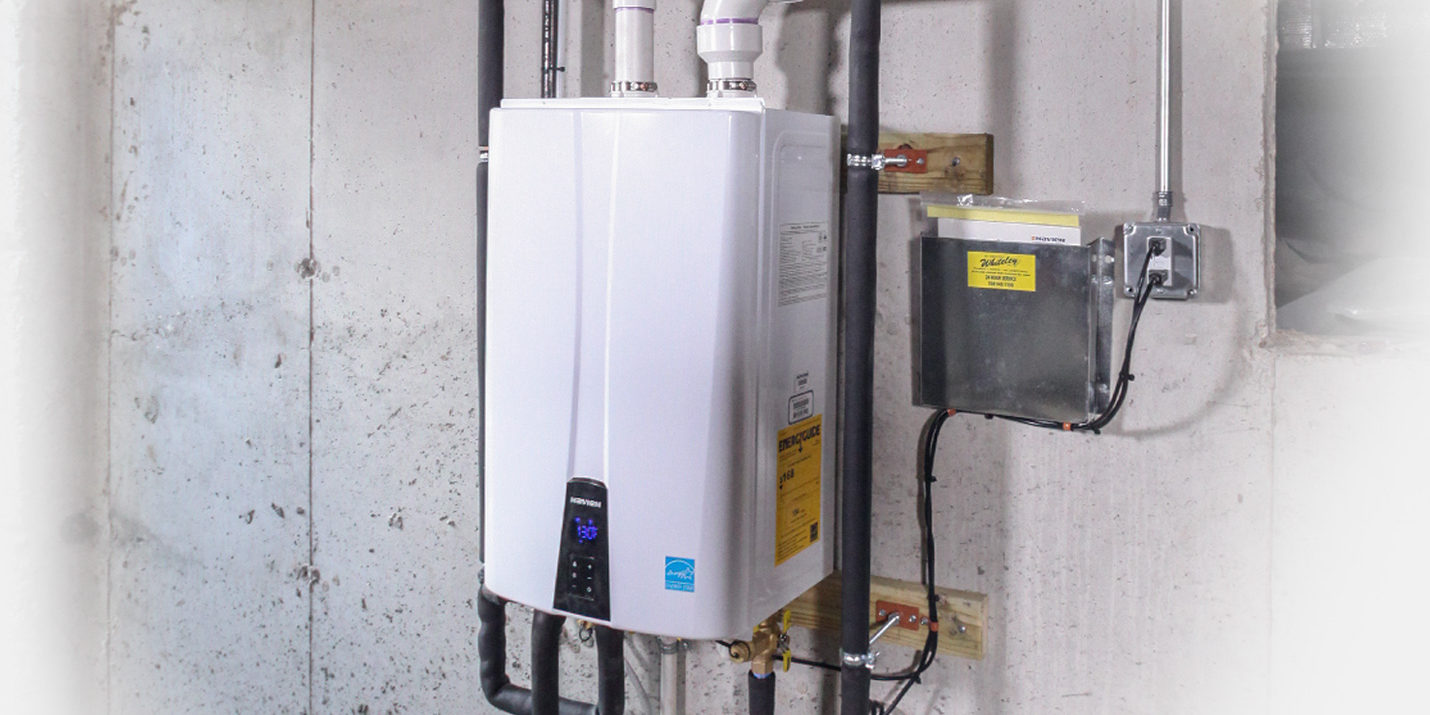How Continuous-Flow Water Heaters Offer Major Benefits
How Continuous-Flow Water Heaters Offer Major Benefits
Blog Article
What are your opinions regarding Six Benefits of a Tankless Hot Water Heater?

In a world where comfort and performance reign supreme, it's no surprise that house owners are frequently in search of smarter ways to manage their home's energy intake and comfort. One advancement that has gradually acquired popularity is the tankless water heater. But just what makes these systems stick out from the conventional tank-based versions a lot of us matured with? Allow's dive in and explore the advantages of tankless hot water heater, assisting you decide if it's time to make the button in your house.
Intro
Image this: you enter the shower after a lengthy day, anticipating a relaxing waterfall of warm water, just to be welcomed by icy beads since the last person utilized everything up. Noise familiar? Typical hot water heater keep a fixed amount of hot water, suggesting you go to the mercy of that tank's supply. Tankless systems, on the other hand, warm water as needed. Say goodbye to going out mid-shower, no more wrestling with timetables simply to guarantee warm water is readily available.
Understanding Tankless Water Heaters
What Are Tankless Water Heaters?
Tankless water heaters, often known as on-demand or instantaneous hot water heater, give warm water only as it's needed. As opposed to storing gallons of pre-heated water, these systems kick into action the moment you activate the tap. Water goes through a warmth exchanger, heating up in real-time, implying you obtain an undisturbed flow of hot water without the need for a big tank resting lazily by.
Just how Do They Vary from Traditional Solutions?
Standard heating units hold a tank of hot water, making use of power to maintain that container at a constant temperature level. Tankless systems get rid of the standing supply, reducing squandered power and the large footprint of a large cyndrical tube. Essentially, you're updating from a "stockpile" way of thinking to a "made-to-order" method.
Usual Types of Tankless Systems
Tankless hot water heater normally come in 2 varieties: gas and electrical. Gas versions tend to provide higher flow prices, perfect for bigger houses, while electrical models frequently serve smaller homes and are typically easier to install. Additionally, some systems are made for point-of-use (serving one component) while others can deal with the whole home's warm water needs.
Trick Benefits of Tankless Water Heaters
1. Countless Warm Water Supply
Ever before needed to schedule showers so everybody gets their reasonable share of warm water? With tankless, that ends up being a thing of the past. As long as the heating system's flow ability isn't gone beyond, you can take back-to-back showers without becoming a popsicle.
2. Energy Performance and Expense Financial Savings
Say goodbye to heating up a giant tank's well worth of water and keeping it toasty all the time. Tankless heating units reduce standby energy losses, which can lower utility costs. While the preliminary price could be higher, the long-lasting savings commonly warrant the financial investment.
3. Space-Saving Style
If your home is short on storage, eliminating the bulky tank maximizes beneficial space. Tankless units are small and can usually be mounted on walls, hidden in edges, or mounted in limited utility wardrobes without grabbing all of the entire space.
4. Longer Life-span
A properly maintained tankless hot water heater can outlive its tank-based cousin. Standard containers could last 10-15 years, while tankless versions can keep chugging along for 20 years or more, making them a solid financial investment over time.
5. Improved Water Top Quality
Keeping water in a storage tank can often lead to debris build-up or a somewhat "off" taste. With tankless systems, fresh water is heated on the spot, lowering the opportunities of debris buildup and possibly supplying cleaner-tasting water.
Factors to consider Prior To Switching
Though the advantages are engaging, it's important to take into consideration a couple of aspects before fully committing.
First Financial Investment Expenses
Tankless heaters generally include a greater ahead of time price. Between the unit itself and potential installment adjustments, the first price might give you sticker shock. However bear in mind to watch it as a lasting investment.
Installation Requirements
Depending upon your home's infrastructure, you may require extra electric ability or gas line upgrades. Guarantee you comprehend the setup needs and talk to an expert to stay clear of surprises.
Evaluating Your Home's Water Use Patterns
If your family simultaneously utilizes numerous fixtures with high hot water demand, see to it the device's flow price meets your needs. Understanding your usage patterns helps you choose the best size and kind of tankless heating system.
Maintenance and Care Tips
Tankless systems are reasonably low upkeep, however they aren't set-it-and-forget-it home appliances.
Regular Cleaning and Descaling
Difficult water minerals can build up in the warm exchanger, influencing effectiveness. Routine descaling (commonly advised each year) keeps the system performing at peak performance.
Yearly Specialist Inspections
A yearly checkup from a specialist makes certain minor issues are captured early. They'll examine the unit's efficiency, search for leakages, and aid preserve optimal performance.
Making Sure Proper Air Flow
For gas versions, proper air flow is essential to safely remove exhaust gases. See to it airing vent systems are tidy and properly set up to avoid any kind of possible safety risks.
Comparing Different Brands and Versions
Not all tankless water heaters are produced equal.
Looking Into Trusted Manufacturers
Try to find respectable brand names with a history of producing top quality devices. A trusted maker usually gives far better consumer assistance and longer service warranties.
Reviewing Evaluations and Individual Feedback
Individual evaluations and comments from next-door neighbors or buddies who have actually gone tankless can provide valuable insights. Occasionally, real-life experiences can be much more informing than advertising sales brochures.
Setup: Do It Yourself or Professional?
While some home owners delight in dealing with tasks themselves, tankless installation could not be the most effective time to burst out the toolbox.
Benefits and drawbacks of Do It Yourself Installation
A do it yourself set up can save cash, yet it includes dangers. Wrong setup can cause inadequacy or safety and security problems. If you're handy and have experience, it might be possible-- but proceed with care.
When to Call an Expert Plumber
For the majority of, calling a professional makes sure whatever's done properly. A professional plumbing comprehends local codes, sizing demands, and airing vent parameters, reducing the danger of accidents.
Maximizing Efficiency
You've bought a tankless device-- currently optimize its efficiency.
Optimal Temperature Setups
Lots of people establish their systems in between 120-140 F. Adjusting the temperature level can boost convenience and cost savings. Experiment to find a sweet spot that doesn't squander energy.
Pairing with Low-Flow Fixtures
Wish to extend your system's capabilities? Think about installing low-flow showerheads and faucets. They lower water use, allowing your tankless system to deliver a steady stream of warm water without straining.
Ecological Effect
Tankless hot water heater align with greener living objectives.
Decreased Carbon Footprint
By utilizing less energy and just heating water as required, tankless systems can decrease your home's carbon footprint, reducing your ecological impact.
Conserving Natural Resources
Less power intake and much less lost hot water translate into less natural resources being made use of, an ecological win-win.
Who Profits The Majority Of from Tankless Heating units?
The elegance of tankless heating units is that they can match a range of households.
Big Families vs. Single Owners
Big family members may love the limitless warm water supply, while solitary owners appreciate the power savings from not heating an entire container for simply one person's morning shower.
Home Owners with Restricted Area
If your home is short on square video footage, losing the large container frees up room for other fundamentals-- or perhaps simply more elbow room.
Eco-Conscious Customers
Going tankless aligns with eco-friendly worths, ensuring you're not squandering power or resources.
Future Patterns in Tankless Hot Water Heater
The world of home appliances is ever-evolving, and tankless water heaters are no exemption.
Smart Home Integration
Visualize adjusting your water heater's temperature level by means of an application or receiving maintenance informs on your phone. As smart home tech advances, we'll see even more connectivity and convenience.
Innovations in Modern technology
R&D is constantly boosting heat exchangers, making units extra efficient and resilient. Future designs could be also quieter, extra small, and much better fit for varying climates.
Conclusion
Choosing a tankless hot water heater is greater than simply upgrading your home's hot water system; it's investing in lasting convenience, energy efficiency, and a greener lifestyle. By considering your household's water use, being mindful of installation needs, and dedicating to regular upkeep, you can appreciate a steady stream of warm water without the luggage of a bulky container. As innovation evolves, you can eagerly anticipate even smarter, extra effective tankless solutions that not just make your life easier however also profit the planet.
Why You Should Consider a Tankless Water Heater for Your Home
Energy Efficiency and Cost Savings
Tankless water heaters, also known as on-demand water heaters, heat water only when needed. This means they don't waste energy keeping a tank of water hot constantly. This efficiency translates into substantial cost savings on your monthly energy bills.
Endless Hot Water Supply
One of the significant advantages of tankless water heaters is their ability to provide a continuous supply of hot water. Traditional tank water heaters have a limited capacity and can run out of hot water, especially during peak usage times. In contrast, tankless water heaters can provide an endless stream of hot water, making them ideal for larger families or homes with high water usage.
Space-Saving Design
Tankless water heaters are compact and take up significantly less space compared to traditional tank heaters. They can be installed on walls, under cabinets, or even outside, freeing up valuable space in your home. This makes tankless water heaters a great option for smaller homes or properties with limited space for a traditional water heater.
Longer Lifespan and Lower Maintenance
Tankless water heaters typically have a longer lifespan compared to traditional tank heaters. They can last up to 20 years or more with proper maintenance. Additionally, tankless systems are designed with replaceable parts, which can extend their lifespan further and reduce long-term maintenance costs.
Environmentally Friendly
Reducing energy consumption not only saves you money but also benefits the environment. Tankless water heaters contribute to a smaller carbon footprint by using less energy to heat water. Their energy efficiency and ability to minimize standby heat loss make them an eco-friendly choice for environmentally conscious homeowners.
Customized Temperature Control
Tankless water heaters offer precise temperature control, allowing you to set the desired temperature to meet your specific needs. This level of customization ensures you always have water at the perfect temperature for your comfort and usage requirements.
https://beantownservices.com/blog/consider-tankless-water-heater-for-your-home

I came across that blog entry on Six Benefits of a Tankless Hot Water Heater while doing a lookup on the search engines. Are you aware of another person who is looking into the topic? Be sure promote it. Bless you for your time. Revisit us soon.
Additional Resources Report this page